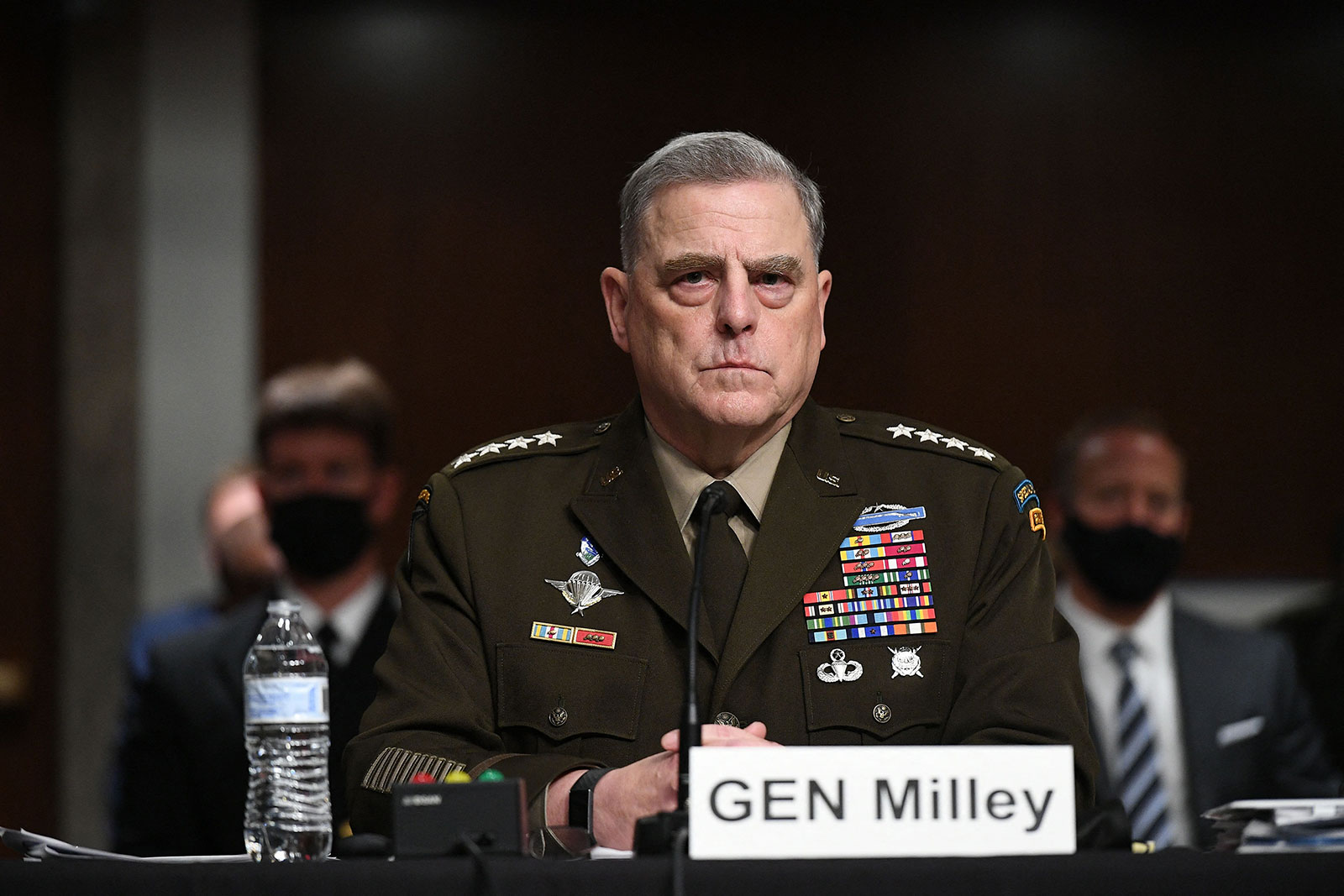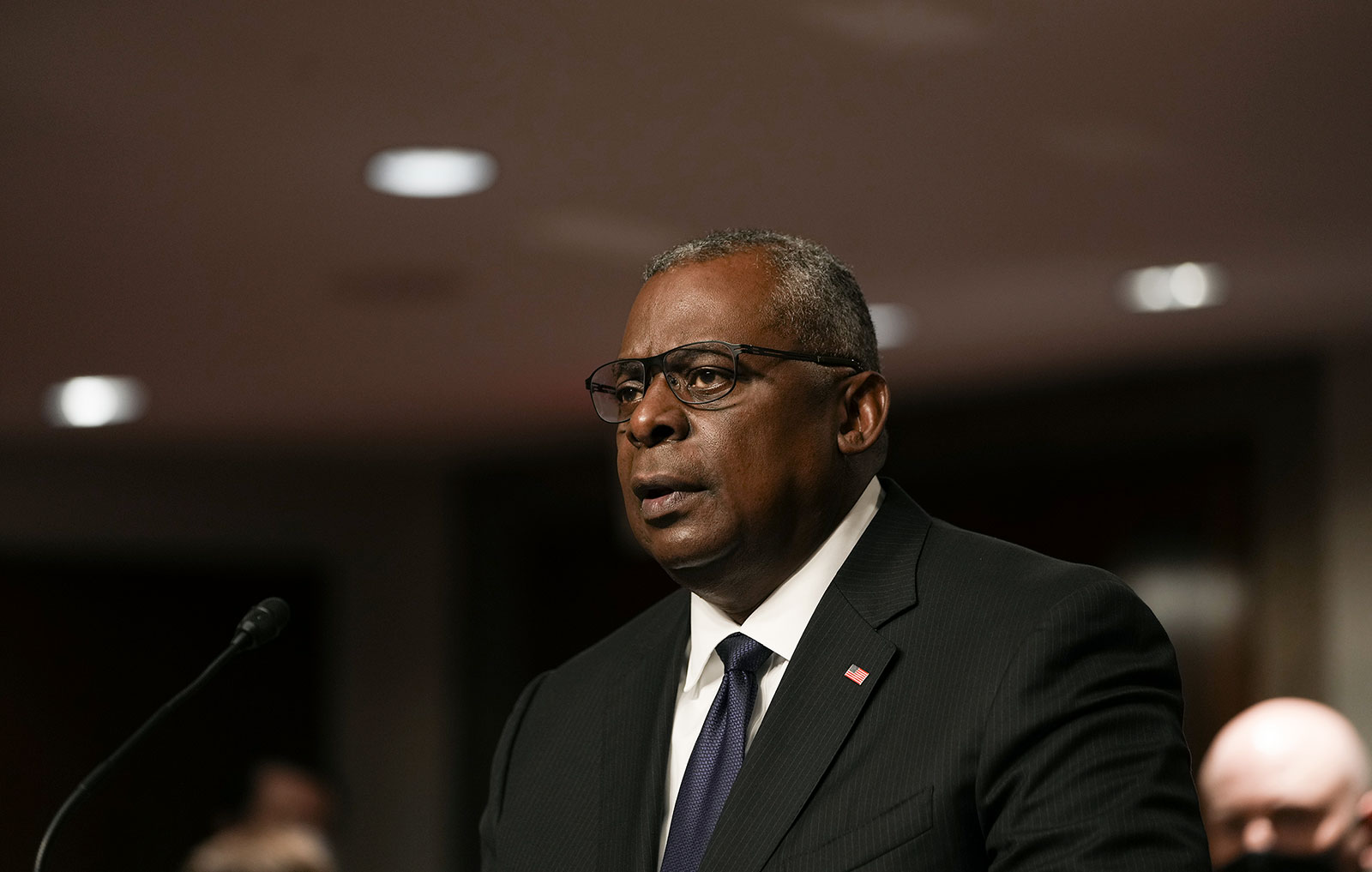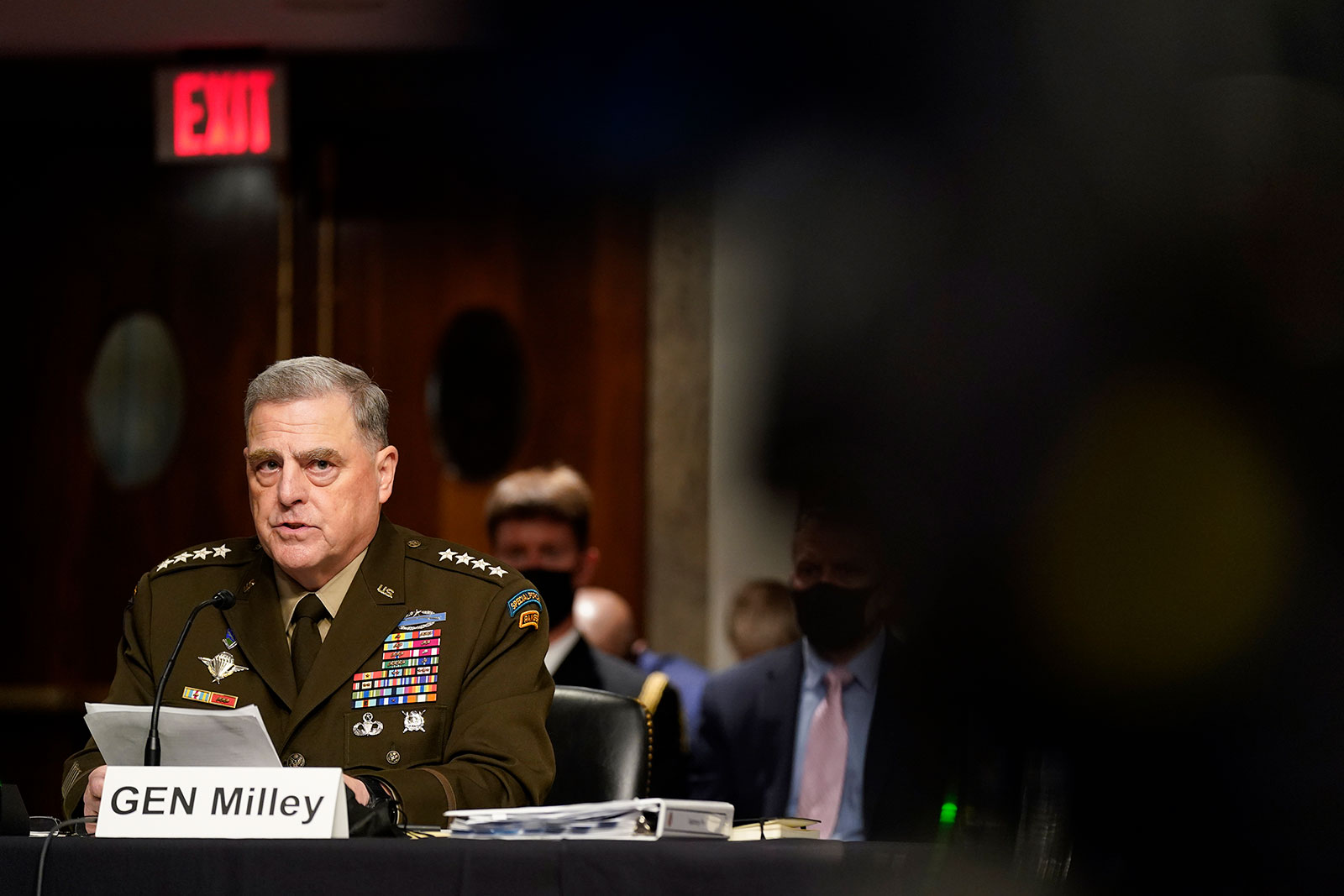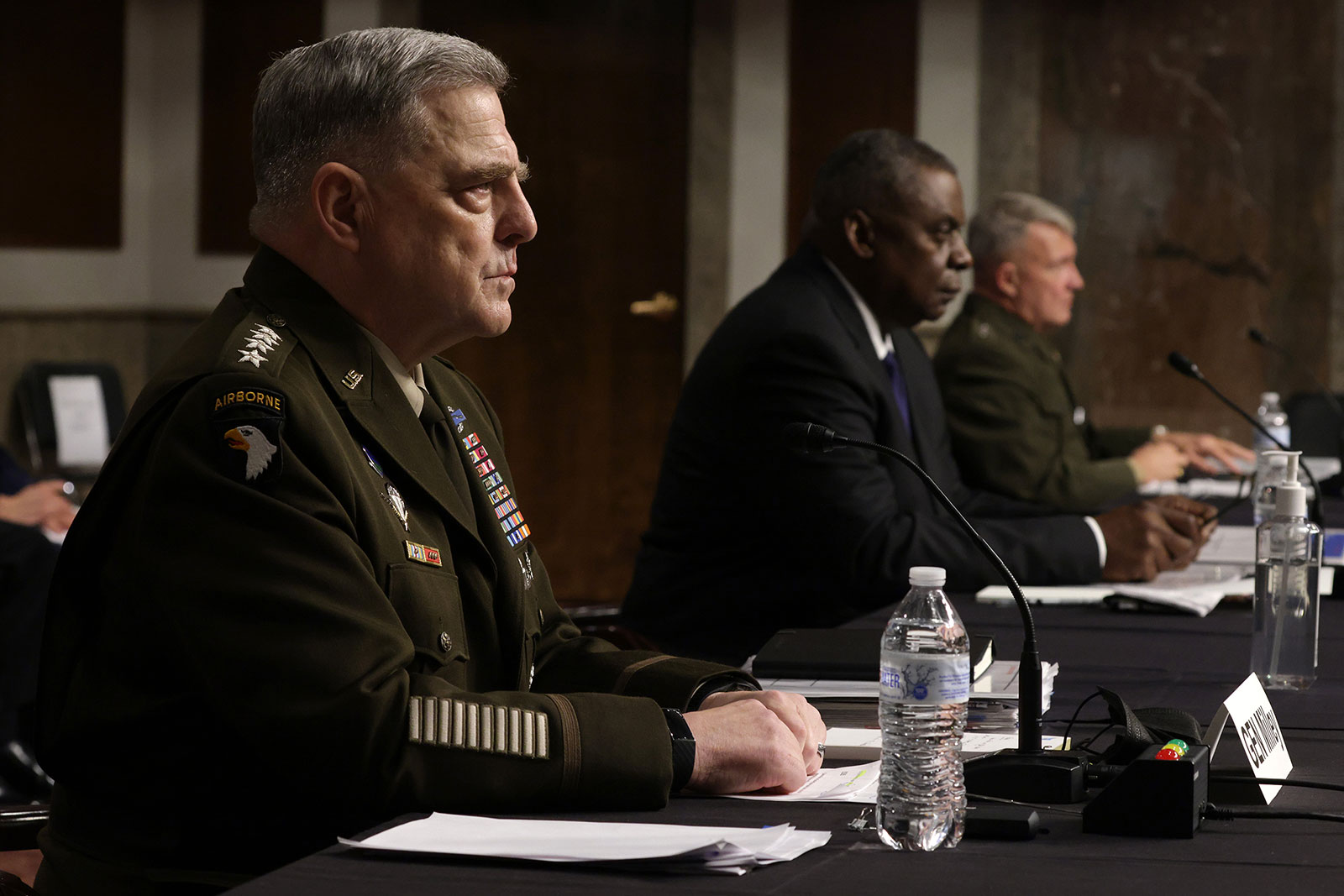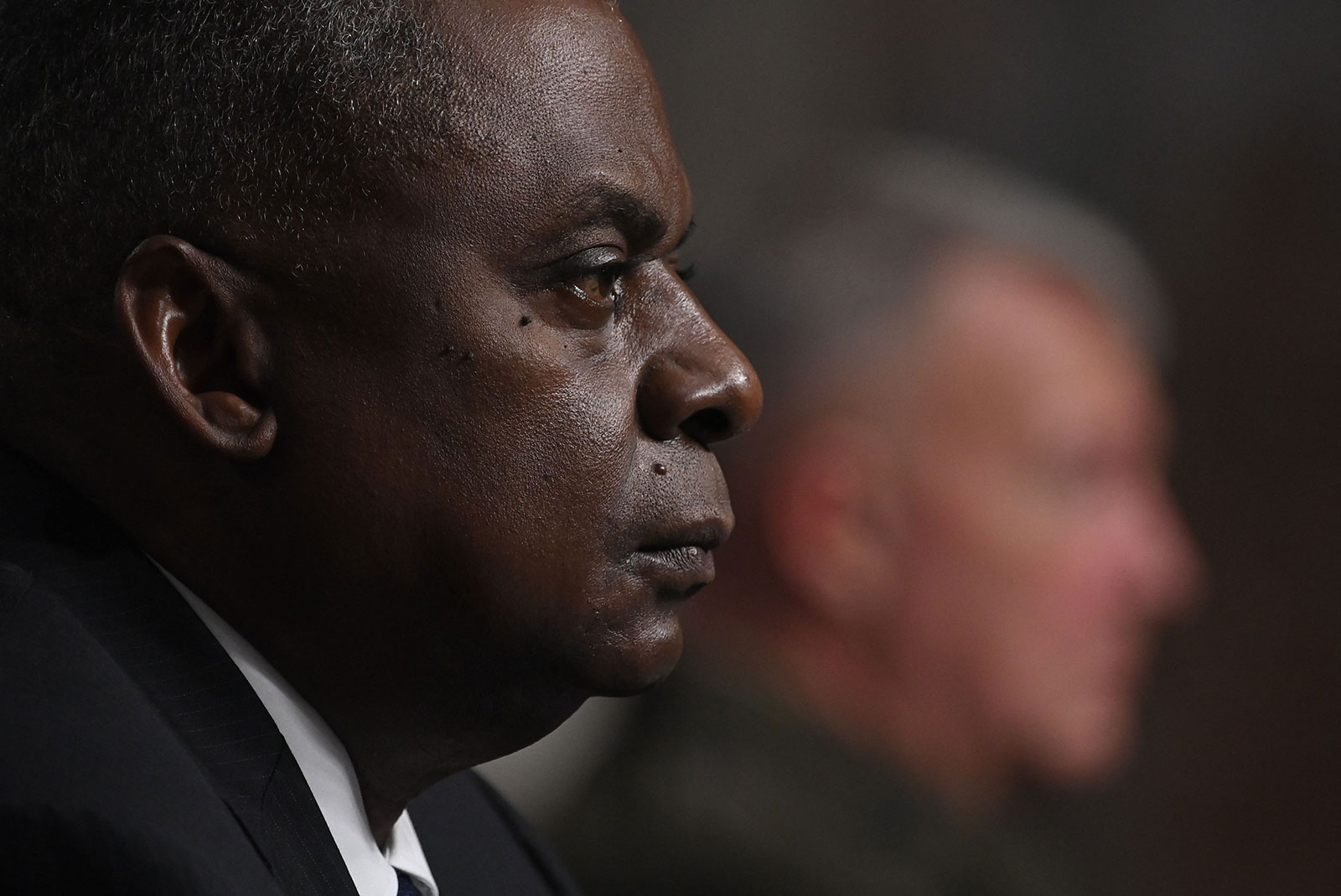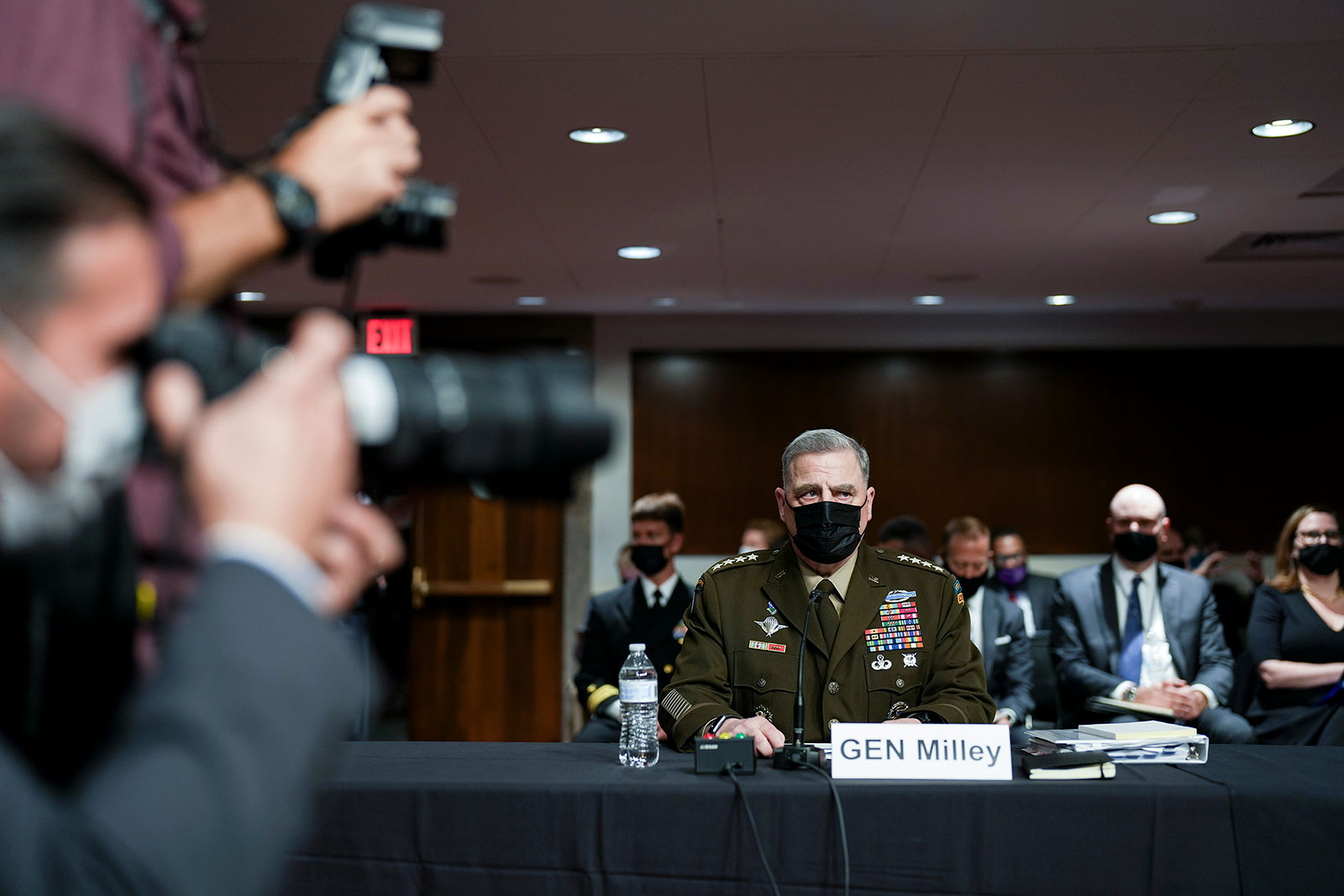
Chairman of the Joint Chiefs of Staff Gen. Mark Milley submitted two unclassified memos to the Senate Armed Services Committee regarding phone calls he had with his Chinese counterpart during the final months of the Trump administration.
Here's what the memos outline:
- One of the memos includes a timeline of events regarding when calls between Trump administration Department of Defense officials and Chinese officials took place from November 2019 to January 2021.
- The timeline shows Milley talked with General Li in December 2019 and April 2020 as well as the October 2020 and January 2021 calls that had previously been reported.
- The January 8 calls between Milley and General Li and Milley and Speaker of the House Nancy Pelosi were first reported in the book Peril from journalists Bob Woodward and Robert Costa. Milley has faced criticism for the calls.
- The other memo submitted to Congress provides background information about Milley’s call with Speaker Pelosi on January 8, two days after the insurrection on Capitol Hill. The memo says that Milley “immediately informed” then-Acting Secretary of Defense Chris Miller about his call with Pelosi. The memo says Pelosi asked for an “immediate phone call to discuss undefined ‘urgent matters,’” with Milley on the morning of Jan. 8. During the call, Pelosi was “concerned and made various personal references characterizing the President,” the memo said.
“I explained to her that the President is the sole nuclear launch and he doesn’t launch them alone, and that I am not qualified to determine the mental health of the President of the United States,” Milley said in his opening statement to the Senate Armed Services Committee hearing on Tuesday.
“At no time was I attempting to change or influence the process, usurp authority, or insert myself into the chain of command, but I am expected to give my advice and ensure the President is fully informed,” Milley said in the memo.
The memo with the timeline of calls between Chinese officials and DoD officials also provides relevant statutory guidance about the Chairman’s role in advising the President of the United States.
“Communication between the President or the Secretary (or their duly deputized alternates or successors) and the CCDRs ‘will be transmitted through the Chairman unless otherwise directed,’” the memo states.
